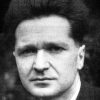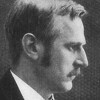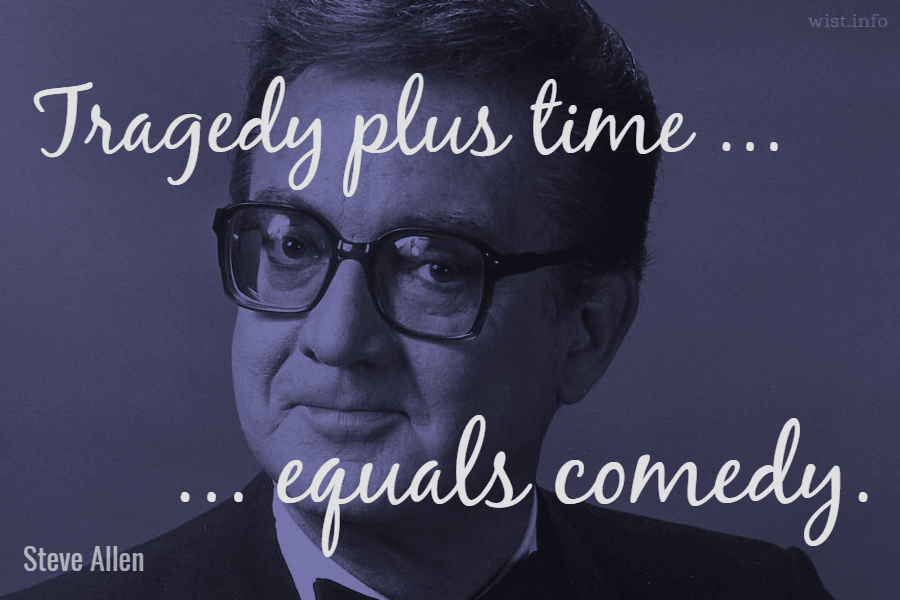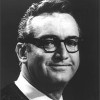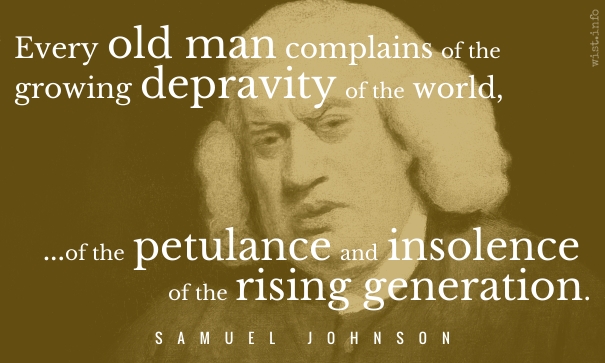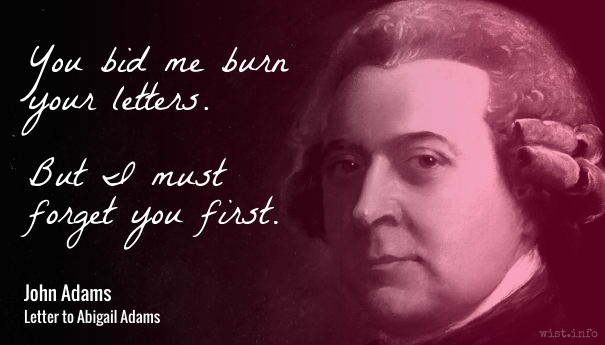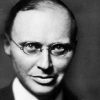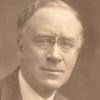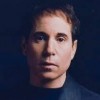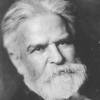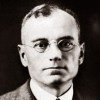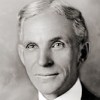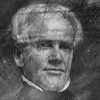A good man can expand his life: he lives
twice over whose past life can be enjoyed.[Ampliat ætatis spatium sibi vir bonus. Hoc est
Vivere bis, vita posse priore frui.]Martial (AD c.39-c.103) Spanish Roman poet, satirist, epigrammatist [Marcus Valerius Martialis]
Epigrams [Epigrammata], Book 10, epigram 23 (10.23.8-9) (AD 95, 98 ed.) [tr. McLean (2014)]
"To Antonius Primus." (Source (Latin)). Alternate translations:
Thus good men to themselves long life can give,
T' enjoy our former life is twice to live.
[tr. May (1629)]
Each must, in vertue, strive for to excell;
That man lives twice, that lives the first life well.
[tr. Herrick (1648)]
He liveth twice, who can the Gift retain
Of Mem'ry, to enjoy past Life again.
[tr. Cotton (1685)]
Thus a good man prolongs his mortal date;
Lives twice, enjoying thus his former slate.
[tr. Hay (1755)]
For he lives twice who can at once employ
The present well, and e'en the past enjoy.
[tr. Pope (1713)]
They stretch the limits of this narrow span;
And, by enjoying, live past life again.
[tr. Lewis (1750)]
A good man amplifies the span of his existence ; for this is to live twice, to be able to find enjoyment in past life.
[tr. Amos (1858); he gives several other contemporary uses and translations.]
A good man lengthens his term of existence; to be able to enjoy our past life is to live twice.
[tr. Bohn's Classical (1859)]
So good men lengthen life; and to recall
The past, is to have twice enjoyed it all.
[tr. Stevenson (c. 1883)]
The good man prolongs his life; to be able to enjoy one's past life is to live twice.
[Bartlett's (1891)]
A good man has a double span of life,
For to enjoy past life is twice to live.
[ed. Harbottle (1897)]
A good man widens for himself his age's span; he lives twice who can find delight in life bygone.
[tr. Ker (1919)]
Redoubled happiness and life hath he
Whose joy doth live again in memory.
[tr. Pott & Wright (1921)]
The good man lengthens out his earthly skein,
For living in the past is life again.
[tr. Francis & Tatum (1924), #525]
A good man's life is doubly long,
For he lives twice who, day and night,
Can in his whole past take delight.
[tr. Marcellino (1968)]
Virtue extends our days: he lives two lives who relives his past with pleasure.
[Bartlett's (1968)]
A good man enlarges for himself his span of life. To be able to enjoy former life is to live twice over.
[tr. Shackleton Bailey (1993)]
The good man has no ugly past he would forget,
So memory gives him doubled life without regret.
[tr. Ericsson (1995)]
He does not deplore life's brevity.
For virtue is itself longevity.
[tr. Wills (2007)]
When I remember,
success, failure,
friend, enemy,
wife, lover
I live twice over.
[tr. Kennelly (2008), "Living"]
A good man can expand his life: he lives
twice over whose past life can be enjoyed.
[tr. McLean (2014)]
The good man broadens for himself the span of his years: to be able to enjoy the life you have spent, is to live it twice.
[tr. Nisbet (2015)]
Quotations about:
past
Note not all quotations have been tagged, so Search may find additional quotes on this topic.
The word Martini is a nostalgic passport to another era — when automobiles had curves like Mae West, when women were either ladies or dames, when men wore hats, when a deal was done on a handshake, when boxing and polo were regular pastimes, when we lived for movies instead of MTV, and when jazz was going from hot to cool. It was a time when a relationship was called either a romance or an affair, when love over a pitcher of Martinis was bigger than both of us, sweetheart, and it wouldn’t matter if the Russians dropped the bomb as long as the gin was wet and the vermouth was dry. That as Martini Culture.
Barnaby Conrad III (b. 1952) American author, artist, editor
The Martini: An Illustrated History of an American Classic, “The Great Martini Revival” (1995)
(Source)
Conrad reworked the passage in "Martini Madness" in Cigar Afficionado (Spring 1996):
The Martini is a cocktail distilled from the wink of a platinum blonde, the sweat of a polo horse, the blast of an ocean liner's horn, the Chrysler building at sunset, a lost Cole Porter tune, and the aftershave of quipping detectives in natty double-breasted suits. It's a nostalgic passport to another era -- when automobiles had curves like Mae West, when women were either ladies or dames, when men were gentlemen or cads, and when a "relationship" was true romance or a steamy affair. Films were called movies then, the music was going from le jazz hot in Paris to nightclub cool in Vegas, and when a deal was done on a handshake, the wise guy who welched soon had a date with a snub-nosed thirty-eight. Love might have ended in a world war, but a kiss was still a kiss, a smile was still a smile, and until they dropped the atomic bomb there was no need to worry, schweetheart, as long as the vermouth was dry and the gin was wet. That was Martini Culture.
There’s nothing like studying the bestseller lists of bygone years for teaching an author humility. You’ve heard of the ones that got filmed, normally. Mostly you realize that today’s bestsellers are tomorrow’s forgotten things.
Neil Gaiman (b. 1960) British author, screenwriter, fabulist
“This Much I Know,” The Guardian (5 Aug 2017)
(Source)
By virtue of depression, we recall those misdeeds we buried in the depths of our memory. Depression exhumes our shames.
Emile Cioran (1911-1995) Romanian philosopher and essayist [E.M. Cioran]
Anathemas and Admirations, ch. 11 “That Fatal Perspicacity” (1986) [tr. R. Howard (1991)]
(Source)
The Moving Finger writes; and, having writ,
Moves on: nor all your Piety nor Wit
Shall lure it back to cancel half a Line,
Nor all your Tears wash out a Word of it.Omar Khayyám (1048-1123) Persian poet, mathematician, philosopher, astronomer [عمر خیام]
Rubáiyát, 71 [tr. FitzGerald]
A reference to Daniel 5 in the Bible.
So fleet the works of men, back to their earth again;
Ancient and holy things fade like a dream.Charles Kingsley (1819-1875) English clergyman, historian, essayist, novelist (pseud. "Parson Lot")
“Old and New,” ll. 3–4 (1848)
(Source)
Darkness and light divide the course of time, and oblivion shares with memory a great part even of our living beings; we slightly remember our felicities, and the smartest strokes of affliction leave but short smart upon us. Sense endureth no extremities and sorrows destroy us or themselves. To weep into Stones are fables. Afflictions induce callousities, miseries are slippery, or fall like Snow upon us, which notwithstanding is no unhappy stupidity. To be ignorant of evils to come, and forgetful of evils past, is a merciful provision in nature, whereby we digest the mixture of our few and evil days, and our delivered senses not relapsing into cutting remembrances, our sorrows are not kept raw by the edge of repetitions.
Thomas Browne (1605-1682) English physician and author
Hydriotaphia, or Urne-Buriall, ch. 5 (1658)
(Source)
It used to be a good hotel, but that proves nothing — I used to be a good boy, for that matter. Both of us have lost character of late years.
Mark Twain (1835-1910) American writer [pseud. of Samuel Clemens]
The Innocents Abroad, ch. 57 (1869)
(Source)
The book has been man’s greatest triumph. Seated in my library, I live in a Time Machine. In an instant I can be transmitted to any era, any part of the world, even to outer space. I have lived in every period of history. I have listened to Buddha speak, marched with Alexander, sailed with the Vikings, ridden in canoes with the Polynesians. I have been at the courts of Queen Elizabeth and Louis XIV; I have been a friend to Captain Nemo and have sailed with Captain Bligh on the Bounty. I have walked in the agora with Socrates and Plato, and listened to Jesus deliver the Sermon on the Mount.
Best of all, I can do it all again, at any moment. The books are there. I have only to reach up to the shelves and take them down to relive the moments I have loved.
We, or at least I, can have no conception of human life and human thought in a hundred years or fifty years. Perhaps my greatest wisdom is the knowledge that I do not know. The sad ones are those who waste their energy in trying to hold it back, for they can only feel bitterness in loss and no joy in gain.
Am I the person who used to wake in the middle of the night and laugh with the joy of living? Who worried about the existence of God, and danced with young ladies till long after daybreak? Who sang “Auld Lang Syne” and howled with sentiment, and more than once gazed at the full moon through a blur of great, romantic tears?
Tragedy plus time equals comedy.
Steve Allen (1922-2000) American composer, entertainer, and wit.
“Steve Allen’s Almanac,” Cosmopolitan (Feb 1957)
Similar formulations have been made by Carol Burnett, Lenny Bruce, Bob Newhart, and Woody Allen. For more discussion see here.
It is perfectly true, as the philosophers say, that life must be understood backwards. But they forget the other proposition, that it must be lived forwards.
We spake of many a vanished scene,
Of what we once had thought and said,
Of what had been, and might have been,
And who was changed, and who was dead;
And all that fills the hearts of friends,
When first they feel, with secret pain,
Their lives thenceforth have separate ends,
And never can be one again.
Every old man complains of the growing depravity of the world, of the petulance and insolence of the rising generation. He recounts the decency and regularity of former times, and celebrates the discipline and sobriety of the age in which his youth was passed; a happy age which is now no more to be expected, since confusion has broken in upon the world, and thrown down all the boundaries of civility and reverence.
Samuel Johnson (1709-1784) English writer, lexicographer, critic
The Rambler, #50 (8 Sep 1750)
(Source)
History is crowded with the persons who have exchanged a life of dismay for death. Lucius Aruntius killed himself, he said, to escape from both the future and the past.
[L’Histoire est toute pleine de ceux qui en mille façons ont changé à la mort une vie peneuse. Lucius Aruntius se tua, pour, disoit-il, fuir et l’advenir et le passé.]
Michel de Montaigne (1533-1592) French essayist
Essays, Book 2, ch. 3 “A Custom of the Island of Cea [Coustume de l’Isle de Cea]” (c. 1573) (2.3) (1595) [tr. Ives (1925)]
(Source)
The reference to Lucius Aruntius, who killed himself during the waning days of Tiberius' reign before he could, like other enemies of Tiberius, be imprisoned and executed, was added in the 1588 edition. The event is described in Tacitus, Annals, Book 6, sec. 48.
(Source (French)). Alternate translations:
The historie is very full of such, who a thousand wayes have changed a lingering-toylsome life with death. Lucius Aruntius killed himselfe (as he saide) to avoyde what was past, and eschew what was to come.
[tr. Florio (1603)]
History abounds with instances of persons that have in a thousand forms, exchanged a melancholy life for death. Lucius Aruntius killed himself for the sake, as he said, of flying from deeds past and to come.
[tr. Cotton (1686), Vol. 1, ch. 60]
History is everywhere full of those who by a thousand ways have exchanged a painful and irksome life for death. Lucius Aruntius killed himself, to fly, he said, both the future and the past.
[tr. Cotton/Hazlitt (1877)]
History is chock full of those who in a thousand ways have changed a painful life for death. Lucius Arruntius killed himself, he said, to escape both the future and the past.
[tr. Frame (1943)]
History is full of people who have, in thousands of ways, exchanged a pain-filled life for death. Lucius Aruntius killed himself, "to escape," he said, "from the future and the past."
[tr. Screech (1987)]
You couldn’t get hold of the things you’d done and turn them right again. Such a power might be given to the gods, but it was not given to women and men, and that was probably a good thing. Had it been otherwise, people would probably die of old age still trying to rewrite their teens.
Reading good books is like having a conversation with the most distinguished men of past ages — indeed, a rehearsed conversation in which these authors reveal to us only the best of their thoughts.
[Que la lecture de tous les bons livres est comme une conversation avec les plus honnêtes gens des siècles passés, qui en ont été les auteurs, et même une conversation étudiée en laquelle ils ne nous découvrent que les meilleures de leurs pensées.]
René Descartes (1596-1650) French philosopher, mathematician
Discourse on Method [Discours de la méthode], Part 1 (1637) [tr. Cottingham, Stoothoff (1985)]
(Source)
(Source (French)). Alternate translations:
The reading of good books, is like the conversation with the honestest persons of the past age, who were the Authors of them, and even a studied conversation, wherein they discover to us the best only of their thoughts.
[tr. Newcombe ed. (1649)]
The perusal of all excellent books is, as it were, to interview with the noblest men of past ages, who have written them, and even a studied interview, in which are discovered to us only their choicest thoughts.
[tr. Veitch (1901)]
I was aware that the reading of all good books is indeed like a conversation with the noblest men of past centuries who were the authors of them, nay a carefully studied conversation, in which they reveal to us none but the best of their thoughts.
[tr. Haldane, Ross (1911)]
The reading of all good books is like a conversation with the finest men of past ages, who are their authors, and even a studied conversation in which they unfold to us only the best of their thoughts.
[tr. Kennington (1964-76)]
The reading of good books is like a conversation with the best men of past centuries -- in fact like a prepared conversation, in which they reveal only the best of their thought.
[tr. Ascombe, Geach (1971)]
The reading of all good books is like a conversation with the finest men of past centuries.
[Common translation, unsourced]
The world of books is the most remarkable creation of man. Nothing else that he builds ever lasts. Monuments fall; nations perish; civilizations grow old and die out; and, after an era of darkness, new races build others. But in the world of books are volumes that have seen this happen again and again, and yet live on, still young, still as fresh as the day they were written, still telling men’s hearts of the hearts of men centuries dead.
Clarence Day (1874-1935) American author and cartoonist
The Story of the Yale University Press, ch. 2 (1920)
(Source)
We can draw lessons from the past, but we cannot live in it.
Lyndon B. Johnson (1908-1973) American politician, educator, US President (1963-69)
Speech, Consumer Advisory Council, Washington, DC (1963-12-13)
(Source)
But the greatest gift in the power of loneliness to bestow is the realization that life does not consist either of wallowing in the past or of peering anxiously at the future; and it is appalling to contemplate the great number of often painful steps by which one arrives at a truth so old, so obvious, and so frequently expressed. It is good for one to appreciate that life is now. Whether it offers little or much, life is now — this day — this hour — and is probably the only experience of the kind one is to have.
The secret of health for both mind and body is not to mourn for the past, worry about the future, or anticipate troubles, but to live in the present moment wisely and earnestly.
Whichever way we look the prospect is disagreeable. Behind, we have left pleasures we shall never more enjoy, and therefore regret; and before we see pleasures which we languish to possess, and are, consequently, uneasy till we possess them.
It is folly to pretend that one ever wholly recovers from a disappointed passion. Such wounds always leave a scar. There are faces I can never look upon without emotion. There are names I can never hear spoken without almost starting.
In reactive problem solving we walk into the future facing the past — we move away from, rather than toward, something. This often results in unforeseen consequences that are more distasteful than the deficiencies removed.
Come, clear the way, then, clear the way:
Blind creeds and kings have had their day.
Break the dead branches from the path;
Our hope is in the aftermath —
Our hope is in heroic men,
Star-led to build the world again.
To this Event the ages ran:
Make way for Brotherhood — make way for Man.
However accurately we may determine the “facts” of history, the facts themselves and our interpretations of them, and our interpretation of our own interpretations, will be seen in a different perspective or a less vivid light as mankind moves into the unknown future. Regarded historically, as a process of becoming, man and his world can obviously be understood only tentatively, since it is by definition something still in the making, something as yet unfinished. Unfortunately for the “permanent contribution” and the universally valid philosophy, time passes; time, the enemy of man as the Greeks thought; to-morrow and to-morrow and to-morrow creeps in this petty pace, and all our yesterdays diminish and grow dim: so that, in the lengthening perspective of the centuries, even the most striking events (the Declaration of Independence, the French Revolution, the Great War itself; like the Diet of Worms before them, like the signing of the Magna Carta and the coronation of Charlemagne and the crossing of the Rubicon and the battle of Marathon) must inevitably, for posterity, fade away into pale replicas of the original picture, for each succeeding generation losing, as they recede into a more distant past, some significance that once was noted in them, some quality of enchantment that once was theirs.
Carl L. Becker (1873-1945) American historian
“Everyman His Own Historian” (3), speech, American Historical Association, Minneapolis (29 Dec 1931)
(Source)
Great as our differences are, all of us — professors, politicians, preachers — would no doubt find that we had much in common after all if it were possible to meet in the flesh some distinguished representatives from a former age.
It is from the ruins of the Capitol that we perceive, as from a great distance, a thousand years filled with dim shapes of men moving blindly, performing strangely, in an unreal shadowy world.
Carl L. Becker (1873-1945) American historian
The Heavenly City of the Eighteenth-century Philosophers, “The New History” (1932)
(Source)
YOKE: Things past redress are now with me past care.
William Shakespeare (1564-1616) English dramatist and poet
Richard II, Act 2, sc. 3, l. 175 (2.3.175) (1595)
(Source)
The secret of health for both mind and body is not to mourn for the past, worry about the future, or anticipate troubles, but to live in the present moment wisely and earnestly.
It isn’t good to hold on too hard to the past. You can’t spend your whole life looking back. Not even when you can’t see what lies ahead. All you can do is keep on keeping on, and try to believe that tomorrow will be what it should be — even if it isn’t what you expected.
TURHAN: The past tempts us, the present confuses us, and the future frightens us. And our lives slip away, moment by moment, lost in that vast, terrible in-between.
Memory is often the attribute of stupidity; it generally belongs to heavy spirits whom it makes even heavier by the baggage it loads them down with.
But Goethe tells us in his greatest poem that Faust lost the liberty of his soul when he said to the passing moment: “Stay, thou art so fair.” And our liberty, too, is endangered if we pause for the passing moment, if we rest on our achievements, if we resist the pace of progress. Change is the law of life. And those who look only to the past or present are certain to miss the future.
John F. Kennedy (1917-1963) US President (1961-63)
Speech, Paulskirche, Frankfurt, Germany (25 Jun 1963)
(Source)
Variant in some locations: "... And those who look only to the past are certain to miss the future."
We are like dwarfs on the shoulders of giants, so that we can see more than them and things at a greater distance.
Bernard of Chartres (d. after 1124) French philosopher, scholar, administrator. [a.k.a. Bernardus Carnotensis]
(Attributed)
Attributed in John of Salisbury, The Metalogicon, 3.4 (1159). Paraphrase of this original: "Bernard of Chartres used to say that we [the Moderns] are like dwarves perched on the shoulders of giants [the Ancients], and thus we are able to see more and farther than the latter. And this is not at all because of the acuteness of our sight or the stature of our body, but because we are carried aloft and elevated by the magnitude of the giants." See here for more discussion. See also Isaac Newton.
Therefore, two bad habits must be forbidden, both the fear of the future and the memory of by-gone trouble; the latter no longer belongs to me, the former, not yet.
ANTONIO: Whereof what’s past is prologue, what to come
In yours and my discharge.William Shakespeare (1564-1616) English dramatist and poet
Tempest, Act 2, sc. 1, l. 289ff (2.1.289-290) (1611)
(Source)
Do not think of knocking out another person’s brains because he differs in opinion from you. It would be as rational to knock yourself on the head because you differ from yourself ten years ago.




